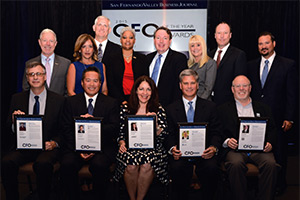By Ron Blair, COO
For a time, that viewpoint held some truth: consulting was often a euphemism for unemployed. Today, consulting is an increasingly viable and attractive option for talented and energetic professionals, so hiring an independent project consultant is no longer a distant second choice to hiring a conventional CPA or specialty consulting firm. Borrowing from a sardonic cliché, the prevailing theory toward consultants used to be, “Those who can, do; those who can’t, consult.”
In fact, the abundance of qualified consultants presents a new dilemma: How do I choose the right person for the job, and how do I optimize the contributions of this critical human resource? The following six steps will help you sort through the various actions you should take to ensure that your experience with your consultant — from beginning to end — is positive and productive.
Step 1: Plan Before You Shop
Before you talk to a single potential consultant, take the time to thoroughly understand the requirements of your project. First, consider the nature of the project:
- Are you looking for an extra hand during a peak period, such as audit or tax preparation, SEC reporting, budgeting season, or the end of a fiscal cycle?
- Do you need a consultant because of limited staff resources, the lack of subject matter expertise among your staff, or the recent loss of a key team member or executive? Next, examine the required logistics and resources:
- What is your estimated budget for this project?
- How many consultants do you need for this project? Who on your staff will be working with the consultant(s)?
- What is your project’s estimated time to completion? Do you need a part-time or full-time consultant to meet this deadline?
Step 2: Tap the Stream for Candidates
Since 2003, the demand for experienced executives and professionals, particularly in the financial arena, has exploded. Here are a few suggestions for how you can find a reliable and effective consultant:
Former employees — Recently retired or laid-off employees know your company culture and the key players, so they have a much shorter learning curve than other consultants. Obviously, there can be challenges in bringing back former employees; but if you can work it out, this can be an excellent way to fill your need.
Conventional consulting firms — You’ll have the advantage of an established firm with the backing of expert managers and partners, but unless you’re a major client, you’ll probably get the firm’s more junior (and less experienced) consultants. This is also a typically more expensive approach than other options.
Independent contractors — Referral is the best way to find a competent and trustworthy independent contractor for your project since these professionals typically do little or no marketing. It is also difficult to verify the capabilities of an independent contractor without talking with someone who has used his or her services.
Temporary staffing agencies — Although this is a less-expensive option, temp agencies often have trouble attracting the best consultants. Caveat emptor certainly applies here.
Project consulting firms — This approach helps to eliminate the potentially negative characteristics of conventional firms, temp agencies and independent consultants, while retaining their best qualities. Businesses like these are a new breed of professional services firms.
With a large client base, firms are able to attract and retain experienced professionals who are not interested in being perceived as temps, but also do not want the pressure of client development and marketing that independent contractors face.
As former executives and top-level employees in leading firms and Fortune 500 companies, these men and women have the technical expertise, industry experience and communication skills to seamlessly integrate into client teams and lead the way to project success.
Step 3: Make the Cut
After you’ve found a few qualified candidates to fill your consultancy position, hone in on the specific expertise and experience you need for your particular project:
Industry experience — How much does the candidate know about your specific industry, especially as it relates to the project at hand? How important is industry- specific knowledge for the successful completion of this particular project?
Functional skills — What are the functional (technical) skills this candidate absolutely must possess in order to add value to your team and project? What functional skills would be a nice asset, but are not an absolute requirement?
Step 4: Prepare for Your New Team Member
Nothing makes a staff more jittery than when a new face suddenly appears on the scene — and more so if that person seems to have a hotline to the boss and the power of persuasion. Therefore, it is extremely important that you discuss the impending arrival and role of the new consultant before his or her first day in your office. Here are a few issues to cover with your staff:
Team membership and roles — Anyone who will work with the consultant should be involved in discussions about the consultant’s responsibilities and key objectives. People get nervous when they believe they’ve been left out of the loop.
Supervision — Clearly define the consultant’s reporting structure, which will help to nip hurt feelings, power plays and confusion in the bud. Remember that the higher the level of person to whom the consultant directly reports, the greater the empowerment of the consultant in the eyes of your staff. This key decision can move the project along by eliminating internal tensions and turf battles.
Job responsibilities — Clearly defining the consultant’s job responsibilities can reduce the sense of threat your staff members may feel. When they know the limited scope and duration of your consultant’s activities, they are less likely to go into self-preservation mode. In addition, you will save precious time and hassle if you prepare your consultant’s workspace and take care of employment logistics (security, parking, computer login and so forth) before he or she arrives.
Step 5: Start off on the Right Foot
On your consultant’s first day, devote a block of time to ease his or her transition into your organization. During this kickoff meeting, cover the following issues:
Introductions — Make sure the consultant meets everyone on your staff and other key people in your organization. Explain each person’s role and responsibilities within the project (if any), as well as the level of access the consultant will have to that person.
Company overview — Discuss pertinent company policies and procedures, including hours of operation, dress code, reporting structure and so forth.
Role review — Reiterate with the consultant his or her responsibilities for the project, key objectives and resources, such as information, computer/data access, people and so forth.
Communication plan — Clearly define your expectations regarding project status reports, meetings, and the level of feedback you require.
Step 6: Follow-Through for Success
How a project concludes is the key measure of its overall success. Projects that have a true impact on your organization have a way of changing the landscape. Therefore, it is crucial that you ensure the success of the project by minimizing resistance and keeping people focused on the desired outcome. Here are a few ways you can ensure — from the beginning — that you’ll reach your project goal:
Lead by example — You may be tired of hearing this, but a leader’s impact on team dynamics is undeniable. Your team is watching you at all times, taking cues from your commitment, enthusiasm and drive toward your goal.
Communicate constantly — Your team needs feedback from you on a regular basis to know that what they are doing is on track and contributing to the project goals. When you see that changes brought about through the project may negatively affect some of your employees’ job roles or responsibilities, acknowledge this fact and communicate it immediately to your entire team. This practice disbands the rumor mill before it even has a chance to form.
Reinforce your project’s purpose and benefits — Occasionally go back to your purpose statement for your project and review this with your team. Remind everyone of the benefits of the project.
Generate involvement — Make sure that everyone on the team has a meaningful role to play so that they will feel invested in the project and its successful outcome. Leaving out employees who should really be part of the team can cause frustration or fear.
Manage resistance — Prepare for resistance — or even all-out sabotage. Plan ahead for your response to potential areas of resistance, and remember that some resistance is perfectly normal. It just needs to be managed. Often, the difference between success and failure when working with a consultant comes down to simple planning and preparation. When you choose the right person for the job, set up your staff and consultant for success and follow- through with integrity and strong leadership, you’re on your way to positive growth and development for your organization.
Ron Blair is COO of Century Group, a firm that specializes in providing senior finance and accounting professionals to middle market, Fortune 500 and Global 1000 clients for project engagements and interim roles.
















 The winners and the awards Committee
The winners and the awards Committee







